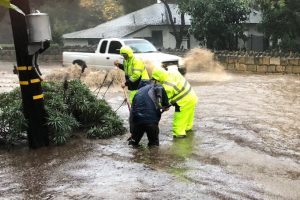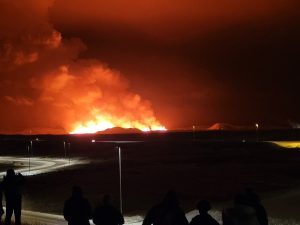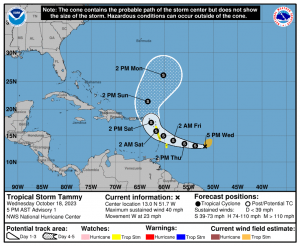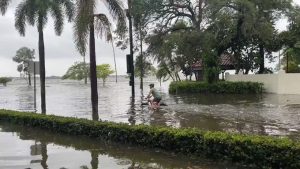The skies over China’s capital city Beijing were covered with thick yellow smog on Monday with pollution levels that increased off the charts as the worst sandstorm in nearly a decade hit the city, reports AFP
Residents of the city used masks, goggles and hairnets to keep themselves protected from the choking sand and dust in the atmosphere. The landmarks, including the Forbidden City, were partly covered behind an unending haze.
Also Read: G7 demands China to end ‘oppression’ in Hong Kong
The local government released an order to cancel outdoor sports and events, and also advised the public to stay inside wherever possible. Hundreds of flights to and from the capital city got cancelled due to the storm.

Chinese weather agencies blamed the poor air quality on a sandstorm sweeping across northern China from northern Mongolia, where authorities there said it had left several dead, before being carried south by winds and reducing visibility in Beijing to less than 500 metres.
Also Read: Pentagon chief sees Asia ties as deterrent against China
Under heavy skies, which draped buildings in an eerie glow, Beijing residents fretted over the health risks of a storm which compounded days of hazardous PM 2.5 pollution in the capital.
It was the worst sandstorm in a decade to hit a capital, which had pegged its hopes of rebuilding a natural barrier to such phenomena on intensive tree replanting in stripped forest areas, also known as the “green great wall”.

Beijing said last year it expected fewer and weaker sandstorms to hit northern China due to its reforestation efforts.
Pan Xiaochuan, a Beijing-based environmental health expert, told AFP that the lack of recent rain or snow meant the ground was extra dry and made the sandstorm “very fierce.”
Also Read | China now ‘non-compliant’ with Hong Kong joint declaration: UK
“If there is less moisture, more dust will be scraped up,” he said. “Since the sandstorm is blown from a high altitude, the general windbreak tree belts won’t be very effective, so it has been blown over … very quickly.

Sandstorms blowing into the capital are a result of extreme weather conditions and desertification, said Li Shuo of Greenpeace China.
But he told AFP that “intense” industrial activities had also contributed to bad air in Beijing over recent weeks, with the production of steel, cement and aluminium already overtaking pre-pandemic levels as the economy bounces back into action.
Also Read: Sri Lanka asks Amazon to remove bikinis and doormats featuring its flag
Pollution in the city was at “hazardous” levels, according to air quality monitoring website Aqicn, as the reading soared off the scale for many apps.
Aqicn said levels of PM 10 large particulate matter were nearly 20 times the World Health Organization’s recommended daily maximum exposure.






